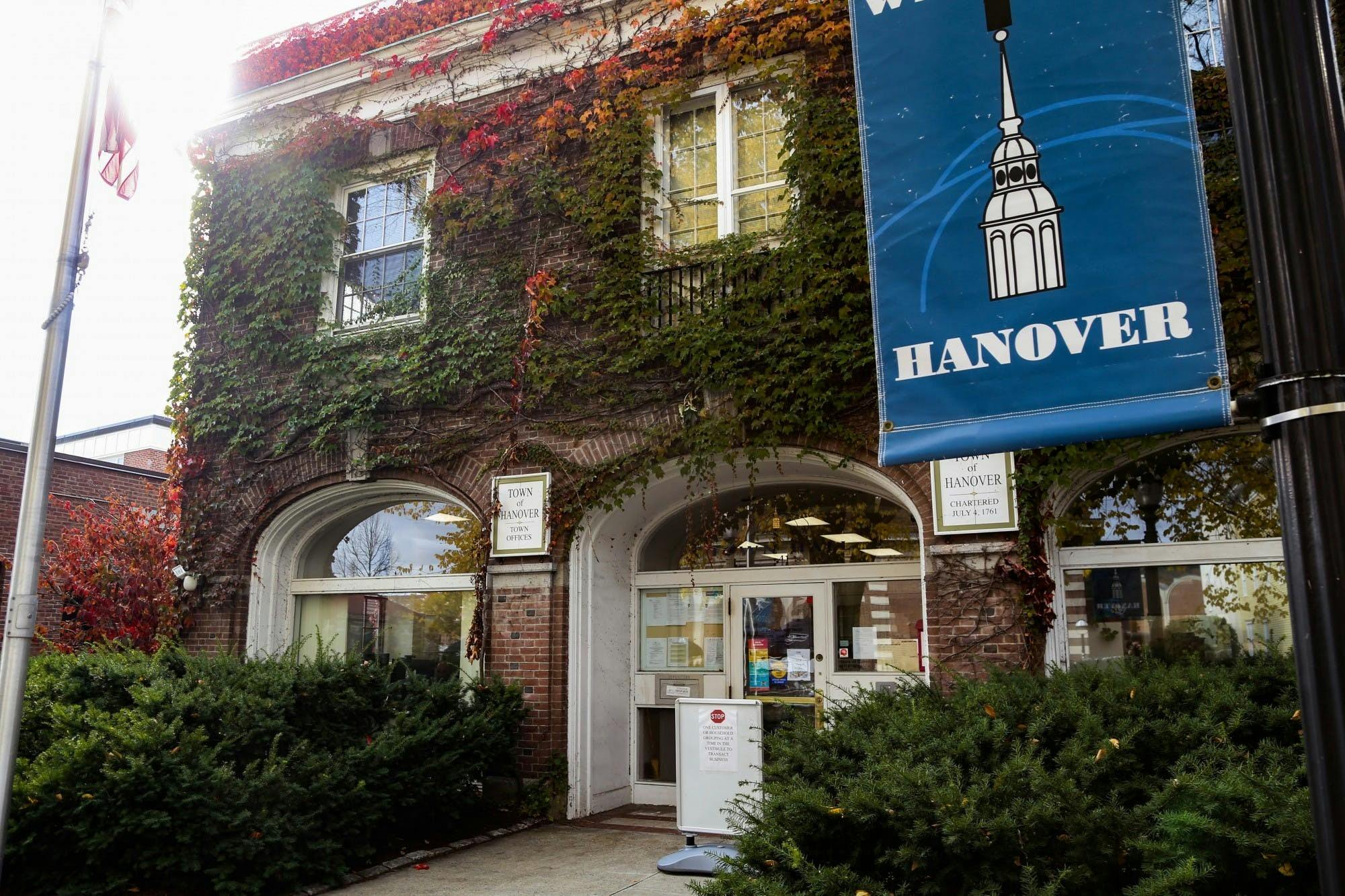On Thursday, Dartmouth Student Government and the Dartmouth Civics Student Association hosted a candidate forum in advance of the Hanover Town Meeting and the Hanover Selectboard election today. Three of the candidates running for the two vacant seats on the Selectboard attended the event — Carey Callaghan ’83, Jennie Chamberlain and Peter Christie. At the forum, Callaghan, Chamberlain and Christie each stated that the lack of affordable housing is the most pressing issue that Hanover residents currently face.
Four additional Selectboard members — Nancy Carter, William Geraghty, Athos Rassias and Joanna Whitcomb — did not attend the forum. While Christie and Geraghy’s seats are up for re-election, Geraghty is not seeking re-election, according to the Valley News.
Callaghan currently serves as Vice Chair of Hanover Finance Committee and he previously served on the Hanover School Board. Chamberlain is a film and media studies lecturer at Dartmouth and chairs the Hanover Bike Walk Committee. Christie has served on the Hanover Selectboard since 2002 and has served as chair of the Hanover Selectboard since 2011.
Dartmouth Civics president Bea Burack ’25 gave an introduction to the forum, which took place at One Wheelock in the Collis Center, and former 2021 Selectboard candidate David Millman ’23 moderated the event. Approximately 30 people attended the event, according to Millman.
Burack explained that the town will vote on a number of items, including the Selectboard and six zoning articles that have been endorsed by the Hanover Planning Board.
After opening remarks, Millman posed two questions from DSG to the candidates. The first question addressed the most important responsibilities of the Selectboard. While Callaghan viewed the body as “primarily a governance board,” Chamberlain stated that the Selectboard has a “great opportunity to ask good questions” about who the Town government should serve. Christie said that members of the Selectboard are “a sounding board for the Town.”
In response to Millman’s second question about why students should be involved in local government, Callaghan said local government is one of the country’s “last, best hopes” for responsible government because it is “where things happen” on a practical level. Christie stated that while “senior leadership” at Dartmouth previously had ties in the Hanover community, this has decreased over time.
The majority of audience questions to the candidates pertained to housing, ongoing construction projects in Hanover and zoning.
Christie emphasized workforce housing in particular. According to the New Hampshire Municipal Association, there are two types of workforce housing: housing for sale and housing for rent. Houses for sale qualify as workforce housing if they are affordable to four-person households earning no more than 100% of the area’s median income. Rentals qualify as workforce housing if they are affordable to three-people households earning no more than 60% of the area’s median income.
“One of the biggest issues we have is attracting and maintaining workers for the town,” Christie said. “[The housing shortage] is affecting everyone.”
Meanwhile, Chamberlain highlighted the importance of student housing first and foremost.
Other questions from the audience addressed how the Selectboard can bridge the divide between students and non-student residents, as well as the Selectboard candidates’ views on the proposed North End Housing project on Lyme Road. Although Selectboard members agreed that the ultimate decision was up to the College and the Planning and Zoning Boards, they had conflicting views. Christie, for example, said that the project has many issues related to town relations.
The candidates also discussed what their major goals would be if elected to Selectboard, and what they believe are other significant issues in the Hanover community.
Christie said that sustainability had been a “major effort” in his tenure on the Selectboard, while Chamberlain said she was running for Selectboard to address housing and transportation, as well as to develop a “vibrant” downtown.
“We need to design places where people want to stick around,” Chamberlain said. “I’m very optimistic we can design a more sustainable and efficient community.”
Callaghan said that he feels “fortunate” to live in Hanover, but he acknowledged that the town “has its issues,” citing affordable housing and diversity as two of the issues he cares about most.
The last question asked what the Selectboard candidates would do to make Hanover more diverse.
Proposed amendments
Amendment 1 proposes a change to Section 405.6 (B) of the Hanover Zoning Ordinance, which would make renovations to existing dormitory residences easier — in addition to replacing and expanding them — by removing the town’s special approval. Parking requirements for student residences would also be reduced through this amendment.
Amendment 2 would expand the number of signs for buildings with a frontage; if a building has a frontage and a point of entry on two streets, the number of signs would increase from two signs total to two signs per each frontage. In addition, the amendment would allow theaters to have electric signs to display event information.
Amendment 3 would clarify the current requirements for new buildings, specifically those on a lot. If two or more buildings are situated on a lot, only the building closest to the front property line has to comply with the “built-to” rules; the other buildings would not require a front wall in the built-to area.
Amendment 4 would reduce the required minimum parking requirements for specific types of housing.
Amendment 5 would clarify definitions in the zoning ordinance to allow mixed-use buildings.
Amendment 6 would allow occupancy requirements for sprinklered multifamily units to comply with the State fire safety code.
Voting will take place today from 7 a.m. to 7 p.m. at Hanover High School.




